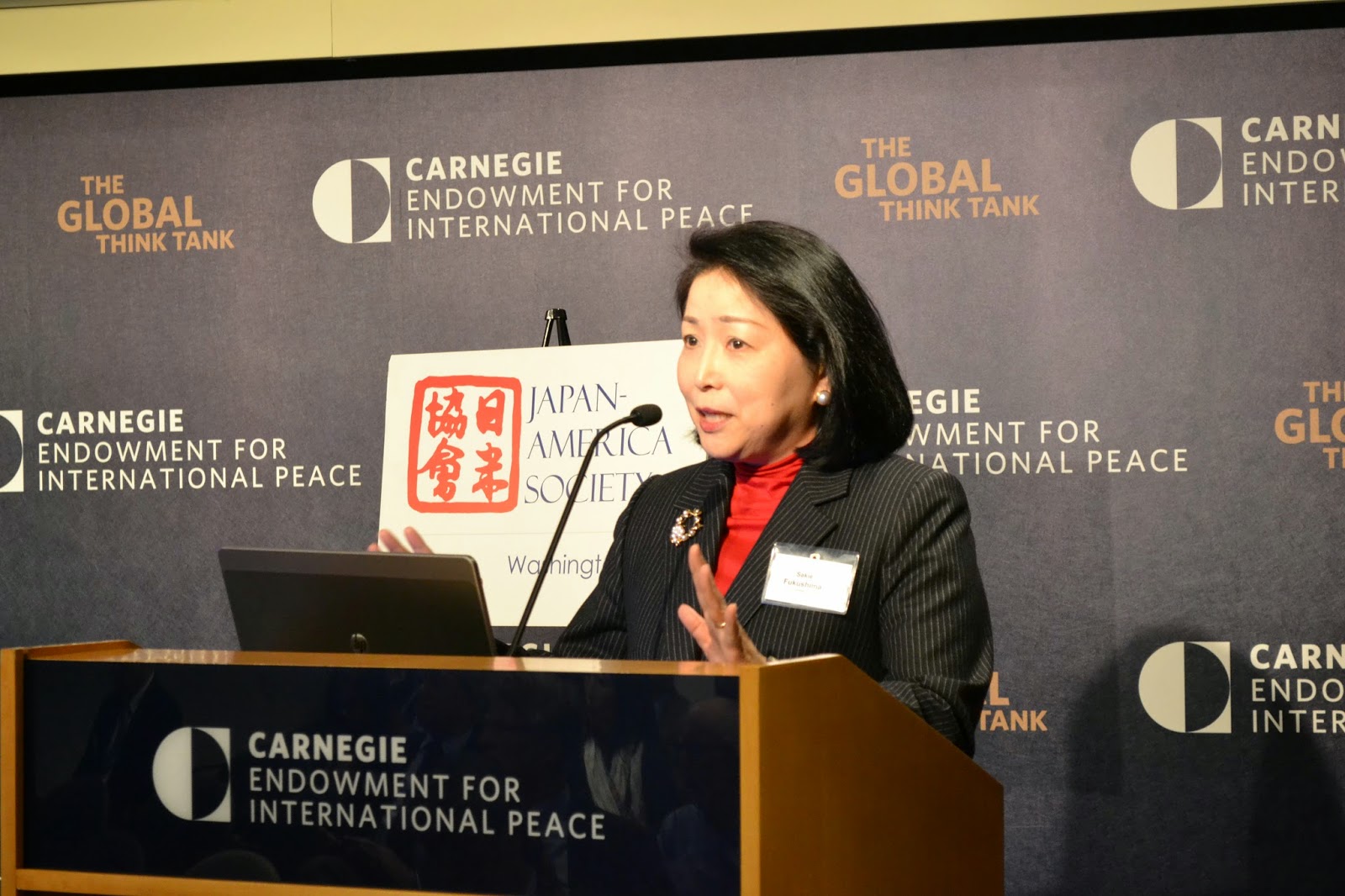Japan in 2015: A Look at the Year Ahead
On Thursday, January 23, 2015, Japan-America Society of
Washington DC with the cooperation of Carnegie Endowment for International
Peace brought together leaders of the US-Japan relations community from
Washington, DC and New York City for Japan in 2015: A Look at the Year Ahead.
This year marks the third year Japan-America Society of
Washington DC presented this event, which is an all-day program in which
experts of Japan predict how Japanese policies, economy or international
relations will develop over the coming year.
It is like a Shinnenkai for Japan experts from the government, academia,
think tanks, media and other institution to come together at the beginning of
the year and reflect on the new year.
Because of the generous support from the Sasakawa Peace
Foundation, we were able to invite Mrs. Sakie Fukushima, from G&S Global
Advisor, Tokyo, to give a keynote address about woman in Japan’s economy. Mrs. Fukushima extensive background of working
for Japanese companies and serving on numerous boards in Japan gave our members
a perspective that few could match. Mrs.
Fukushima’s speech focused on a 2-year old IMF report called “Can Womenomics
Save Japan,” she said the answer is yes.
However, the ability for the economy to rebound is not
gender-specific. She also went on to
site that Japan’s white collar productivity rate is 21st out of the
24 OECD countries. Japan needs to
increase the diversity of its human capital, and not just women. It needs more “international human capital.”
Japan-America Society was fortunate to invite the
editor-in-chief of the Oriental Economist,
Richard Katz. Mr. Katz laid out the successfulness
of Abenomics so far, especially now that Japan is back in recession. He said that 2015 will be a make or break
year for Abenomics. Everyone agrees that
with the LDP’s recent electoral victory, Abe is in a stronger political
position than ever, and the question is whether he is willing to use his
political capital to push forward the economic reforms that are essential.
Shihoko Goto of the Woodrow Wilson
Center said that 2015 will be a watershed year for Japan in another aspect -
its international image. This is the 70th anniversary of the end of World War
II, and the actions and statements that Japan and Prime Minister Abe make will
have an impact on international perceptions of Japan, not just in Asia but also
in the United States. Echoing this theme, Emma Chanlett-Avery of the
Congressional Research Service gave three scenarios for this 70th anniversary
year, in which Japan's relations with its neighbors could improve or
deteriorate, or in which they somehow manage to make it through the year.
Guests in the audience pointed out
that some questions could be directed at the US in this 70th anniversary year.
For example, this also marks the 70th anniversary of the bombing of Hiroshima
and Nagasaki, and how will the US deal with that. Another question: 70 years
after the end of World War II, why does the United States still
"occupy" so much of Okinawa?
All of the panelists agreed that
Prime Minister Abe's political position is strong and secure, and he is likely
to remain as Prime Minister for the foreseeable future.


Comments
Post a Comment